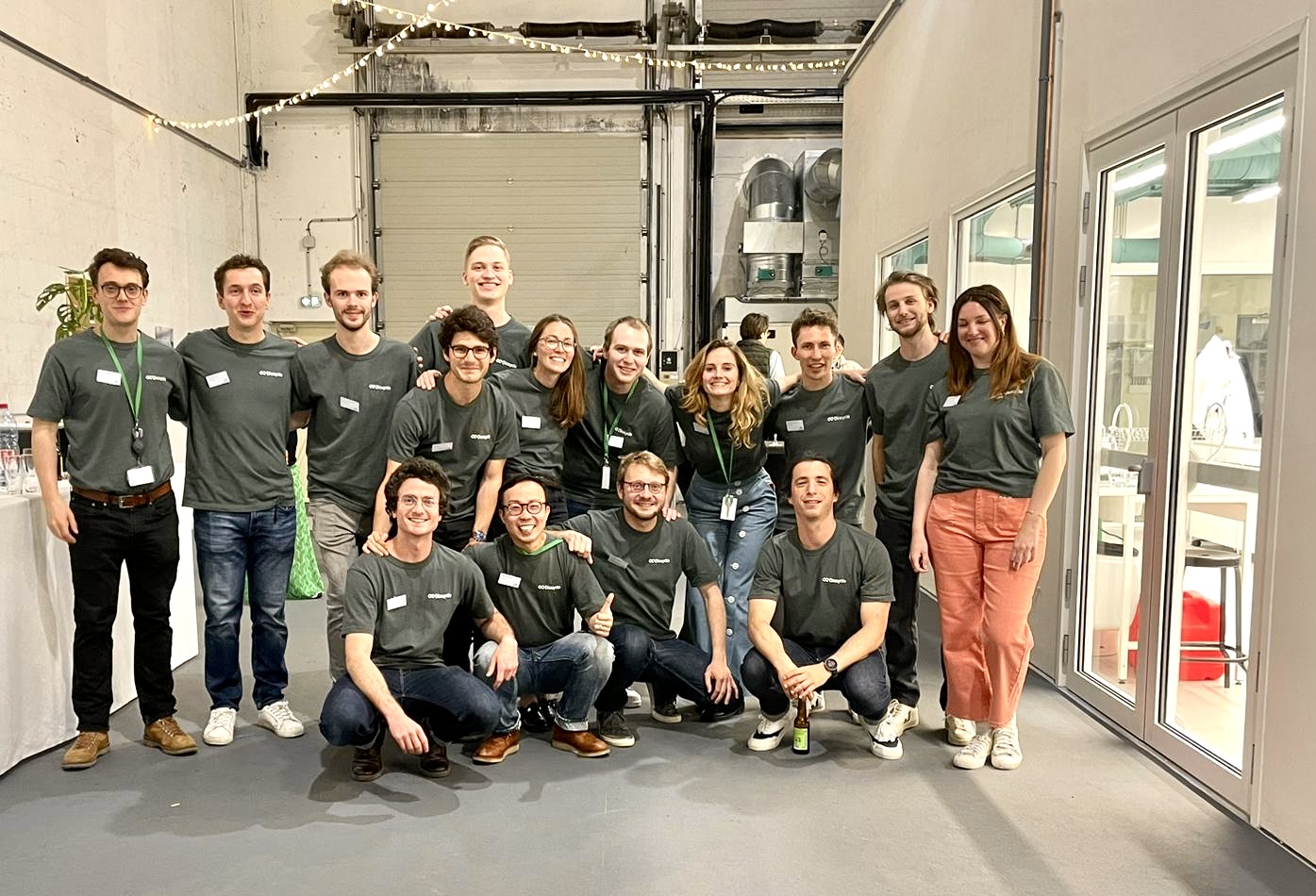Dioxycle is a carbon transformation startup that is working on a new process to produce ethylene at scale using recycled carbon emissions. Ethylene is used in packaging, clothing, PVC-based sewage pipes, car interiors and more. And the company recently raised a $17 million funding round co-led by Breakthrough Energy Ventures and Lowercarbon Capital, with Gigascale Capital also participating.
Dioxycle’s main product is a proprietary electrolyzer that uses water, CO2 and electricity as input. In addition to ethylene, the electrolyzer also rejects oxygen. Originally based in France, the startup wants to work with both French and American clients.
“CO2 is very low in energy – it’s a combustion waste, there’s no energy left in CO2. So we have to provide a source of energy to make this conversion. And we’re using electricity at the connectors of this electrolyzer to enable this conversion of CO2 into ethylene,” co-founder and CEO Sarah Lamaison told me. “So, basically, you’ve got CO2 coming into our machine through a pipe, and this CO2 is going to be distributed over lots of catalytic cores, which are stacked on top of each other to increase the surface area available for the reaction.”
Electrolysis is nothing new, but the main issue with this process is that it requires a lot of input electrical energy. “The tricky thing with this technology is working on a way to make this conversion as energy-efficient as possible, because that’s what increases the costs of your reaction. Electricity will account for around 50 % of your cost, in fact, so that’s huge,” Lamaison said.
Dioxycle has been designing its own catalytic cores with special metal alloys in order to improve the efficiency of the process. The startup tries to maximize the exposure time of CO2 and minimze all potential efficiency losses.
A green discount
The other thing that can make a technology like Dioxycle’s technology attractive is that it can be integrated in factories that produce a lot of carbon emissions and that use ethylene as a source material. This way, the factory can greatly improve its carbon footprint in two different ways. It can reduce its carbon emissions and it doesn’t have to buy as much ethylene from third-party suppliers — ethylene is usually produced using fossil fuels, such as petroleum derivatives.
In addition to the raw material that is used to produce ethylene, the usual transformation process is also responsible of many carbon emissions. In France, ethylene is the third most polluting material behind steel and concrete.
But potential clients also want the cheapest ethylene they can find. This is going to be key for Dioxycle’s long-term success. After two years and a half working on several internal proofs of concept, Dioxycle’s process has become better and better over time.
With today’s funding round, the company plans to roll out its first industrial prototype in a factory. The startup could also receive some public funding in the near future in addition to the funding round — the industrial prototype could be co-financed as a public/private partnership.
“We want to roll out our product in France, because there’s a huge amount of decarbonized electricity available right now. Today, we’re optimizing our carbon footprint by using the most carbon-free electricity possible,” Lamaison said.
Dioxycle also plans to sell its technology to American companies as there are a lot of incentives with the Inflation Reduction Act and the Infrastructure Bill. With a recently introduced tax credit, it makes a lot of sense to capture and/or transform carbon emissions as part of your industrial process.
“That’s how we’re introducing the notion of green discount, as opposed to the well-known notion of green premium, which is the extra cost you pay for a green product versus a fossil fuel-based product,” Lamaison said. “Our process is so efficient in this respect that we can produce ethylene that is cost-competitive with fossil ethylene,” Lamaison said.

Image Credits: Dioxycle
from TechCrunch https://ift.tt/UnZFpqh
No comments:
Post a Comment